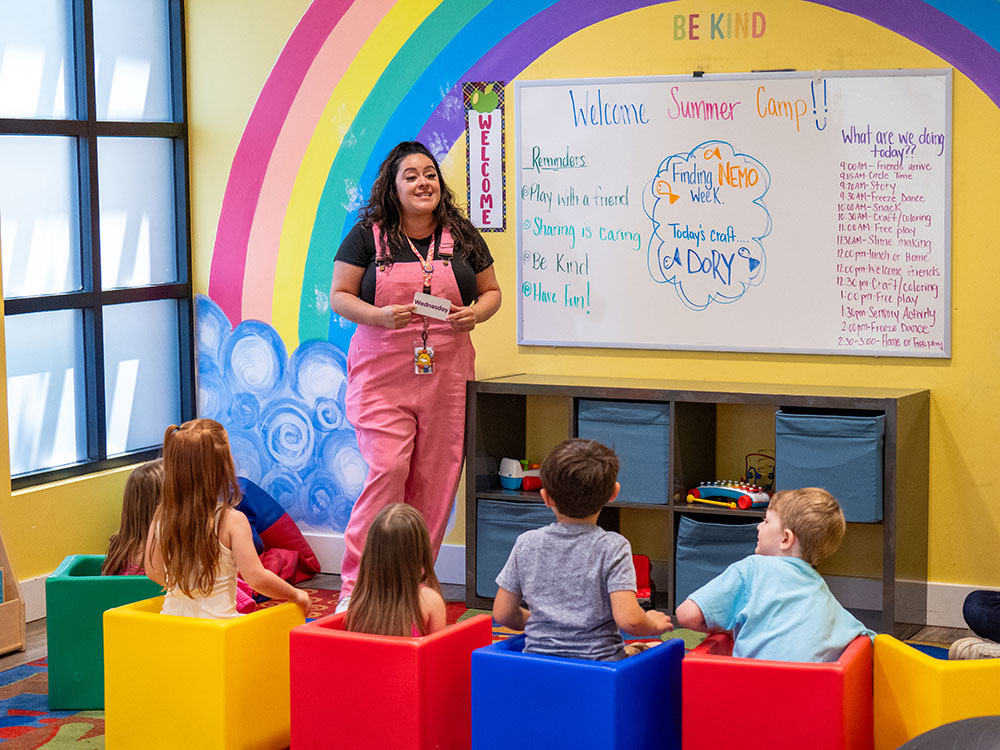ABA Therapy in the Classroom & School Setting
Giving Kids What They Need to Succeed Academically
To learn and grow, kids need to feel safe and be able to navigate the many facets of school effectively. Our ABA providers work with schools in a variety of capacities to give individual students and schools the behavioral support they need to succeed. School-based services vary and can include:
- one-on-one support in the classroom
- functional behavior assessments (FBAs)
- consulting services, including IEP team support
- teacher, parent, caregiver, and family trainings
In need of ABA support in a school? Reach out, and we can help.
LEARN Academy: A Full Range of Customizable Educational Solutions
At LEARN Academy, we take a personalized approach to learning—and create custom solutions for individual students, families, schools, and school districts. Our programs offer critical academic, social-emotional, and behavioral services that help kids and teens overcome challenges and reach their potential. Programs include:
| 1 |
Support Services and Capacity Building |
| 2 |
Special Education Schools and Programs |
| 3 |
Intervention Services |



ABA Therapy in Schools
Integrate applied behavior analysis (ABA) therapy in the classroom for enhanced learning. Empower your school community with evidence-based, contemporary strategies to support students with autism. Explore tailored programs that foster academic success and social development. ABA in schools can be instrumental in transforming educational outcomes for students with autism.
ABA in Schools: FAQs
How is ABA therapy used in schools?
ABA therapy — which stands for applied behavior analysis therapy — is designed to equip children with autism and other developmental needs with the skills and tools required to thrive. ABA in schools involves several key practices, such as:
- One-on-one support: ABA therapists provide individualized support directly within the classroom.
- Functional Behavior Assessments (FBAs): Therapists conduct FBAs in the classroom to identify the functions of challenging behaviors and develop targeted interventions to address them effectively.
- Consulting services: ABA therapists collaborate with school staff to develop behavior intervention plans.
Training programs: They offer sessions for teachers and parents to help them learn ABA techniques and strategies.
How does LEARN Behavioral help with school-based ABA therapy?
LEARN Behavioral facilitates school-based ABA therapy through expert consultation, personalized one-on-one support, and functional behavior assessments (FBAs) to tailor interventions for students with autism. By collaborating closely with school staff, our team helps deliver individualized autism services within the classroom setting. Using data-driven decision-making, LEARN Behavioral monitors and adjusts interventions to foster academic achievement and social development at school.
What are the benefits of using ABA in schools?
Using ABA in schools offers several advantages for students with autism. Here are some of the main benefits of using ABA therapy in a school setting:
- Individualized support
- Behavioral improvement
- Academic progress
- Social skills development
- Consistency across environments
- Teacher and staff training
- Parent involvement and support
Overall, ABA in schools helps create a supportive and inclusive learning environment. For more information on other ABA therapy options, read about visiting a dedicated Learning Center.
What can I expect when using ABA therapy in the classroom?
When using ABA therapy in schools, here’s what to expect: A structured and supportive learning environment that promotes independence, enhances student engagement and facilitates positive outcomes for students on the autism spectrum.
Students with autism and other developmental conditions often struggle in educational settings. By bringing ABA therapy services into the classroom, all students can receive the attention they need and deserve. This includes implementing individualized behavior loans, integrating evidence-based strategies into the curriculum, and teaching academic, communication, social, and daily living skills through systematic, data-driven interventions.
What are the goals of school-based ABA?
The goals of school-based ABA therapy aim to support students with autism in achieving academic, behavioral, and social success. Key goals of ABA therapy in the classroom include:
- Improving behaviors by targeting challenging behaviors and reinforcing appropriate behaviors.
- Enhancing academic skills, such as reading, writing, math, and more, by breaking tasks into manageable steps.
- Teaching and fostering social skills and promoting inclusion and effective communication within the classroom.
- Promoting independence in completing tasks, self-regulation, and decision-making skills.
- Encouraging the application of learned skills beyond the classroom.
- Assisting students in transitioning between grade levels, classrooms, and educational settings.


